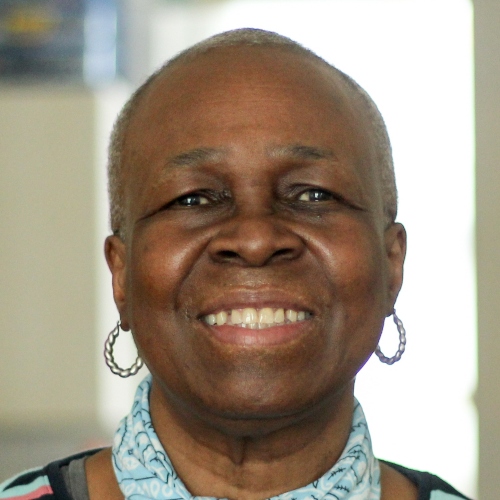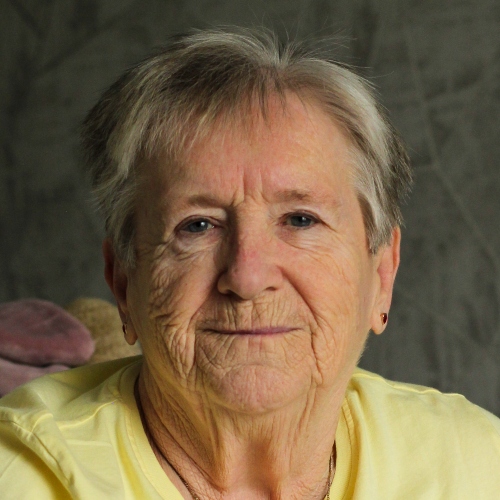Small interactions can have a big impact.
Whether it’s having a laugh with a colleague, a natter with a neighbour, or just sharing a smile with the supermarket cashier, these random acts of connection can help us feel more appreciated and less alone.
But when we can no longer access and enjoy these everyday interactions, how do we keep loneliness at bay?
A sudden change
Claudette, 66, used to be surrounded by people. As a regular attendee at her church in London, and having lived in the same flat for 33 years, Claudette had built up a strong circle of friends and felt part of a caring community.
But when tenancy issues forced Claudette to move out of her flat six years ago, she soon felt disconnected. “Where I live now, it’s totally isolating,” says Claudette. “When I had to move house, I had to change my church too and leave all my friendships behind. Even though I kept in touch [with friends from my old area], and I used to get some visits [from them], once you’ve moved out of a particular area, things change.”

I never used to understand what loneliness was, but now I really do. It just feels like I’m existing – not living.
Although Claudette has tried to connect with her new local community, her long-term chronic illness has been a barrier. “I suffer from 24/7 pain; it never goes away,” Claudette explains. “I go along to my current church to worship, but I rarely stay behind for the social bits because by the time the service is over, I’m extremely tired and need to get back to rest. I haven’t managed to make real friendships.”
“I never used to understand what loneliness was,” Claudette continues. “But now I really do. It just feels like I’m existing – not living.”
For Eva, 73, loneliness began after losing her husband, David, in 2022. “We had our 40th wedding anniversary in the June, and David died in the December,” Eva recalls. “We had such a happy life together. We met at Butlins and had our first kiss there. Some people take a stick of rock home from their holiday – I took him!”
Suddenly finding herself living alone in her Sheffield home after decades of sharing the space with her husband, Eva felt desperately isolated. “I had a three-bedroom house, but after six o’clock at night I never saw anyone – I was all on my own and I couldn’t stand it. My children lived close by, but they’ve got their own families to look after. All I wanted to do was get out. Everything just seemed to fall to pieces.”
Starting new chapters
“I was enquiring about something else with Age UK, and the advisor mentioned the Telephone Friendship Service. I thought, ‘What have I got to lose?’”
Six months after losing David, Eva signed up for a weekly telephone friendship call, and was soon matched with London-based Lorraine. “It was a positive feeling,” says Eva. “She’s a lovely lady, and we just seem to be on the same wavelength. Every Saturday at four o’clock, the phone rings and we talk and help each other – I really look forward to it.”
For Claudette, too, knowing that she’ll have a guaranteed chat each week has made a huge difference. Since signing up to the service in 2020, Claudette has enjoyed regular calls with her telephone friend Elizabeth. “I can go days without talking to anybody – so, for me, it’s just a joy to know I’m getting a call. It’s something to look forward to.
“And Elizabeth is such a wonderful listener,” Claudette continues. “She seems to understand where I am on my life journey, and that’s something I really do appreciate. It’s lovely to have someone to share concerns with. It might not change the situation in terms of what I’m going through or where I am, but knowing that somebody is going to be listening is a really wonderful thing.”

[My telephone friend] helped me through a really bad time when I lost my husband. I think the world of her.
Meanwhile, after learning more about the housing options available to her, Eva decided to move out of her marital home and into sheltered accommodation – and Lorraine was there to provide a listening ear and emotional support throughout the process.
“Once I started talking to Lorraine and found out about assisted living, I said, ‘kids, I’m selling the house!’” says Eva. Throwing herself into every aspect of her new life, Eva enjoys all the coffee mornings, knitting clubs and activities her sheltered accommodation offers – and has even got herself a bee tattoo in the spirit of her hometown of Manchester. “The best thing I ever did was move. I don’t get lonely at all now, and I’m only ten minutes away from my children.”
“Lorraine helped me through a really bad time when I lost my husband. I think the world of her.”
Tackling loneliness together
If you're feeling lonely, you're far from alone. Through our information guides, befriending services and local Age UK activities, we can help you to feel less isolated.

